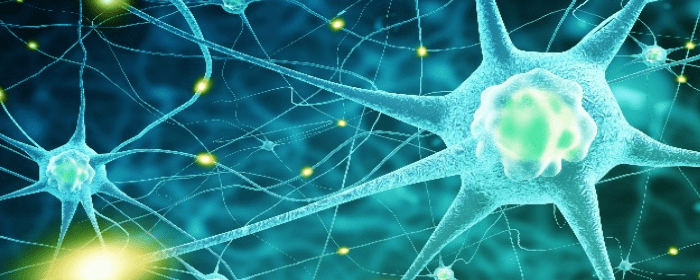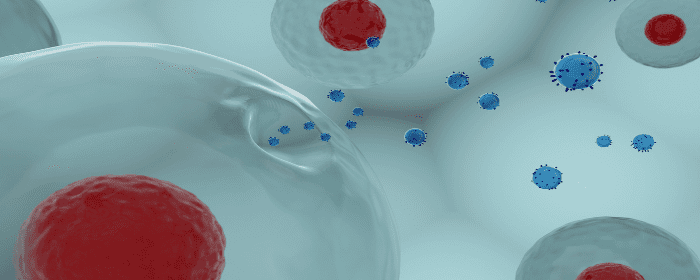
by admin | Jun 25, 2020 | Neurodegenerative Diseases, Mesenchymal Stem Cells, Stem Cell Research
As the name suggests, neurodegenerative diseases are a disease of the nervous system in which nerve cells (i.e. neurons) become dysfunctional and die. As more nerve cells die, certain brain functions slow, change or stop. Alzheimer’s disease, Parkinson’s disease, Huntington’s disease and Amyotrophic lateral sclerosis (ALS) are examples of debilitating and even fatal neurodegenerative diseases. There are no cures for these diseases, but symptom management is the primary focus for patients seeking treatment options.
Neurodegenerative diseases are an attractive target for regenerative medicine. The approach makes sense intuitively; if brain cells are inflamed, dysfunctional, and dying, can mesenchymal stem cells be applied as a targeted approach so that they may differentiate into new brain cells and release all the helpful substances stem cells are known to release. Many researchers share this optimism and believe in the promise of stem cells as a treatment for neurodegenerative diseases. Indeed, Drs. Joyce and coauthors discuss what steps have already been taken to develop stem cells into a potential treatment for neurodegenerative diseases.
The authors describe scientific studies that show how mesenchymal stem cells “promote endogenous neuronal growth, decrease apoptosis and regulate inflammation.” In other words, stem cell transplantation supports nerve cell growth, decreases cell death, and reduces the damaging inflammation that is seen in some neurodegenerative diseases like multiple sclerosis.
According to the scientists, stem cells “can mediate modification of the damaged tissue microenvironment to enhance endogenous neural regeneration and protection.” This means that stem cells can make the area around the diseased brain more favorable to nerve cell growth and development. Stem cells create a protective environment for nerve cells to live and operate.
Clinical trials that study the effects of stem cells in neurodegenerative diseases are progressing. Some studies show that stem cells might be able to slow the rate at which muscle strength declines and are considered safe for those with ALS. Likewise, patients with Huntington’s disease showed motor and cognitive improvements two years after receiving a stem cell transplant into the damaged region of their brains. Moreover, stem cells transplanted into patients with Parkinson’s disease were found to be alive and well 10 years after transplantation. Perhaps more importantly for patients, stem cells provided relief of Parkinson’s disease symptoms.
As of now, stem cell treatments for neurodegenerative diseases can be directed to the targeted tissues with administration techniques such as intranasal or intrathecal injections to bypass the blood-brain barrier. While these injections have been shown time and again to be safe, patients and their providers must consider the process and their safety. Continued research is ongoing and those seeking an alternative option should do their research and discover how regenerative medicine may potentially help them manage their symptoms.
Reference: Joyce, N., et al. (2010). Mesenchymal stem cells for the treatment of neurodegenerative disease. Regenerative Medicine. 2010. Nov; 5(6): 933-946.

by admin | Jun 24, 2020 | ALS, Stem Cell Research
ALS, also known as amyotrophic lateral sclerosis or Lou Gehrig’s disease, is a progressive neurologic condition. There is no current cure for this condition and the only treatments, riluzole and edaravone, are only modestly effective at slowing the disease.
This lack of a cure or effective treatment for ALS is not for a lack of trying. There have been countless clinical trials to test treatments for ALS—almost all have ended in failure in Phase 1 or Phase 2 clinical trials. Indeed, few potential ALS treatments make it to Phase 3 trials—the final stage of clinical testing before a drug is approved by the FDA for treatment.
It is this history of failure that has sparked so much enthusiasm in a new stem cell treatment for ALS. The potential stem cell treatment for ALS is currently known by its development name, NSI-566. NSI-566 is made up of neural stem cells—cells that can become new motor neurons. NSI-566 is injected into the spinal column of patients with ALS so that the stem cells can hopefully restore motor function and improve ALS symptoms.
The Phase 1 study showed a spinal injection of NSI-566 was safe in ALS patients, a finding that was confirmed in the Phase 2 trial. Perhaps more importantly, results from the Phase 2 trial showed that patients who received stem cell treatment did substantially better 24 months later than those who received a placebo. These results were so encouraging, that NSI-566 now heads to Phase 3 clinical testing.
While it will take some time to conduct the Phase 3 clinical trial, reaching this milestone is an achievement in itself. Any Phase 3 trial design will require a relatively large number of patients, so those who are interested should occasionally check clinicaltrials.gov or speak to your neurologist about enrolling as a volunteer.
Reference: Goutman, S., et al. (2018). Long-term Phase 1/2 intraspinal stem cell transplantation outcomes in ALS. Annals of Clinical and TranslationalNeurology 2018; 5(6): 730–740

by admin | May 5, 2020 | Osteoarthritis, Stem Cell Research
Osteoarthritis of the hip is a painful condition that can interfere with leg movement and diminish the quality of life. In some, the symptoms are mild, but in others, osteoarthritis can be severe and can even lead to joint failure. Pain is often intermittent in early stages, but in later stages, the pain can be constant with periods of sharp, intense pain. The hip joint becomes stiff and unstable, making it difficult to move around and greatly increasing the risk of falls.
Unfortunately, there are few effective treatments for osteoarthritis of the hip. Management includes pain control with non-steroidal anti-inflammatory drugs and physical therapy. Steroid injections into the hip are not as effective as they are for knee osteoarthritis, so many doctors hesitate to perform them. Joint supplements such as glucosamine and chondroitin are unlikely to be very effective—clinical trials have not provided evidence that they actually work. The definitive treatment for hip osteoarthritis is hip replacement surgery, which is expensive and associated with a long period of recovery.
The main problem in osteoarthritis is that the joint breaks down over time from wear and tear (i.e. microtraumas). At the same time, the joint has a very limited capacity to heal itself. In other words, once the joint breaks down, it pretty much stays that way. Since life is a series of joint microtraumas, the hip gets progressively worse. Indeed, one in four people will have painful osteoarthritis of the hip by age 85, and hundreds of thousands will have it earlier in life.
Scientists have long wanted to find ways to help the body regenerate the joint substances, particularly joint cartilage. Unfortunately, the joint does not receive good blood supply and no known drug or supplement can actually rebuild joint cartilage. That is the main reason researchers are aggressively testing stem cells as a treatment for hip osteoarthritis.
Mesenchymal stem cells have the potential to become many different types of cells, including chondrocytes (cartilage cells). Mesenchymal stem cells sense the environment they are in and then become the cell consistent with that environment. So, the theory goes, injecting mesenchymal stem cells into the hip joint can prompt them to become hip joint cells (chondrocytes).
Researchers tested this hypothesis in a clinical study. They injected mesenchymal stem cells taken from fat tissue (i.e. adipose) and injected them into the hip joints of people with difficult-to-treat hip osteoarthritis. They compared the patients’ Harris Hip scores (HHS) before and 6 months after treatment. HHS is a reliable way to assess the severity of osteoarthritis symptoms. An HHS score of less than 70 is “poor” and a score of 80 to 90 is “good.” Before stem cell treatment, patients had an average HHS score of 67.2±3.4 and 84.6±6.3 afterward. Scores also improved in other tests including WOMAC and Visual Analogue Scale. In other words, mesenchymal stem cell treatment reduced pain and improved joint function in these patients compared to levels prior to treatment.
The authors of the clinical study state that “preliminary results are positive and promising.” Further research and studies will help to learn more about this regenerative medicine potential.
Reference: Dall’Oca, C. et al. (2019). Mesenchymal Stem Cells injection in hip osteoarthritis: preliminary results. ACTA Biomedica. 2019, 90(Suppl 1): 75-80.

by admin | Jan 15, 2020 | Exosomes, Kidney Disease, Mesenchymal Stem Cells, Stem Cell Research
Kidney diseases are among the most expensive and most debilitating diseases. Total costs are in excess of $50 billion a year, with $30 billion spent on people with end-stage renal disease including hemodialysis and kidney transplantation. People with kidney diseases have diminished quality of life, and substantial amounts of their time are devoted to medical treatment. Not surprisingly, researchers are aggressively pursuing novel therapies to treat kidney diseases before they result in end-stage renal disease. Stem cells and exosomes are among the most exciting and the most promising research topics in this area.
Most cells release tiny packets called extracellular
vesicles. The most notable extracellular vesicles are exosomes. While small,
exosomes are filled with high concentrations of potentially helpful substances
such as RNA, DNA, and proteins. While most cells release exosomes, researchers
are particularly interested in exosomes released by stem cells. It is within
these exosomes that stem cells pass along the substances that make stem cells
helpful in tissue repair and regeneration.
Zhang and
coauthors reviewed the recent advances that have been made using exosomes
to treat kidney diseases. Most of the work has focused on acute kidney injury
or AKI. Acute kidney injury can lead to
chronic kidney disease and kidney failure. Thus, if one could stop AKI, they
could potentially reduce the risk of chronic kidney disease.
Many different research groups have shown the power of
exosomes and other extracellular vesicles in treating acute kidney injury.
Exosomes taken from mesenchymal stem cells protected kidney cells from cell
death and fibrosis and helped them repair themselves. The
same was true of exosomes derived human umbilical cord stem cells.
Even stem cells taken from human liver cells were
able to improve kidney function after injury. There are many other examples.
Gatti
et al. reported that extracellular vesicles derived from human adult
mesenchymal stem cells could protect against acute kidney injury, but, most
impressively, also halted the progression of AKI to chronic kidney disease.
This finding has important implications for people who suffer from serious
acute kidney illnesses, such as kidney ischemia. It means that—if confirmed in
human studies—stem cell-derived extracellular vesicles can help treat kidney
disease in the short term and reduce the risk of that illness becoming a
chronic, debilitating problem.
Further research is needed in this field but, initial
results confirmed by many laboratories have created well-founded enthusiasm for
the future.
Reference: Zhang, W. et al. (2016). Extracellular vesicles
in diagnosis and therapy of kidney diseases. American Journal of Physiology – Renal Physiology. 2016, Nov 1;
311(5): F844-F851.

by admin | Jan 10, 2020 | Chronic Pain, Mesenchymal Stem Cells, Stem Cell Research
Chronic pain, that is, pain lasting for more than 12 weeks, is extremely common. As many as 1 in 3 Americans struggle with chronic pain, making it perhaps the most common physical condition that afflicts humans. Chronic pain is a source of significant suffering; it makes daily tasks more difficult, limits people’s ability to do the things they enjoy, and greatly diminishes the quality of life.
Perhaps the most frustrating aspect of chronic pain is that
there are usually no good treatments. Because the pain is chronic, patients who
try to treat chronic pain with medications must take drugs every day.
Acetaminophen and non-steroidal anti-inflammatories (NSAIDs) like ibuprofen can
help take away some suffering, but they are usually only partially effective.
Opioids are stronger, of course, but have such a high risk of causing
dependence and addiction that few doctors will prescribe for chronic non-cancer
pain. Physical therapy helps some, but not most people. Surgery may be able to
treat people with certain types of chronic musculoskeletal
pain; however, orthopedic surgery is a major ordeal with no guarantees of
success. Consequently, most people with chronic pain are left with very few
treatment options.
Perhaps this lack of chronic pain treatment options is what
makes recent stem cell research in chronic pain treatment so exciting.
Researchers are learning that mesenchymal
stem cells appear to be able to treat people with chronic pain. For
example, in a study of patients with low back pain who received treatment autologous
stem cells (their own stem cell populations purified, expanded, and
re-injected in their bodies), their pain and disability
decreased to the same levels as people who underwent major orthopedic
surgery (spinal fusion or total disc replacement). Another lab in Japan showed similar results.
The same benefit may occur in knee arthritis (osteoarthritis),
as well. Researchers showed that autologous stem cells were able to increase
the size of the knee
meniscus cartilage in a patient with severe knee arthritis. It should be
noted that damaged knee meniscus cartilage is one of the main sources of
chronic pain in knee osteoarthritis.
Of course, the number of patients treated in these studies is relatively small. Larger studies will be required to confirm that mesenchymal stem cells can treat chronic pain. However, these results are intriguing, since a staggering number of studies show autologous stem cell treatment to be safe. Indeed, mesenchymal stem cell treatment is now widely available in clinics and medical practices.
Reference: Waterman R. et al. (2011). Treating Chronic Pain with Mesenchymal Stem Cells: A Therapeutic Approach Worthy of Continued Investigation. Journal of Stem Cell Research & Therapy. 2011, S2 DOI: 10.4172/2157-7633.S2-001.

by admin | Dec 30, 2019 | Stem Cell Therapy, Adipose, Age Management, Mesenchymal Stem Cells, Stem Cell Research
Autologous stem cell treatments offer several advantages over other forms of stem cell treatment. In autologous stem cell treatment, a patient’s own stem cells are retrieved, processed, and injected back into the patient’s body. There is no need for a stem cell donor, and the entire procedure can take place in the same medical office. Since the patient’s own cells are used for an autologous stem cell treatment, there is no risk of disease transmission from a donor (because there is no donor) and no risk of rejection (because they are the patient’s own stem cells). Autologous stem cell treatments has some major benefits for the elderly.
Unfortunately, younger stem cells are better for
regenerative medicine than older stem cells are. Moreover, older people have
fewer stem cells that can be harvested than they did when they were younger. So
while autologous stem cell treatment is still advantageous, it becomes more difficult
to achieve as patients get older because their stem cells are fewer and less potent.
Making matters worse, older stem cells compete against more youthful stem
cells, making autologous stem cell treatments potentially even less effective
in older patients.
Fortunately, stem cell researchers are coming up with ways to make the most out of the stem cells that older patients still have. They still take a sample of tissue, such as fat, and harvest the stem cells contained within it. However, instead of injecting all stem cells from the sample (both older and youthful stem cells), researchers select and use only youthful stem cells. Furthermore, they make the treatments even more effective by injecting other substances (e.g. extracellular matrix) that help youthful stem cells survive, grow, and thrive.
To demonstrate the effectiveness of their approach,
researchers collected mesenchymal
stem cells from about a dozen older individuals aged 65 to 86 years old.
They then assorted the stem cells into different groups, separating youthful
from older stem cells. They then used special factors to help the youthful stem
cells grow, increasing the numbers by an impressive 17,000 times. So while only
8% of stem cells produced by older individuals are “youthful,” this laboratory
process increased those numbers to a point that they can be used for stem cell
treatments—even stored for future use!
The next phase of the research will be to inject these youthful stem cells into older patients and assess their effectiveness. However, even these preliminary results are exciting because they suggest that people of all ages can potentially benefit from autologous stem cell treatments, not just middle age and younger individuals.
Reference: Block, TJ et al. (2017). Restoring the quantity and quality of elderly human mesenchymal stem cells for autologous cell-based therapies. Stem Cell Research & Therapy. 2017 Oct 27;8(1):239.







 St. Petersburg, Florida
St. Petersburg, Florida
